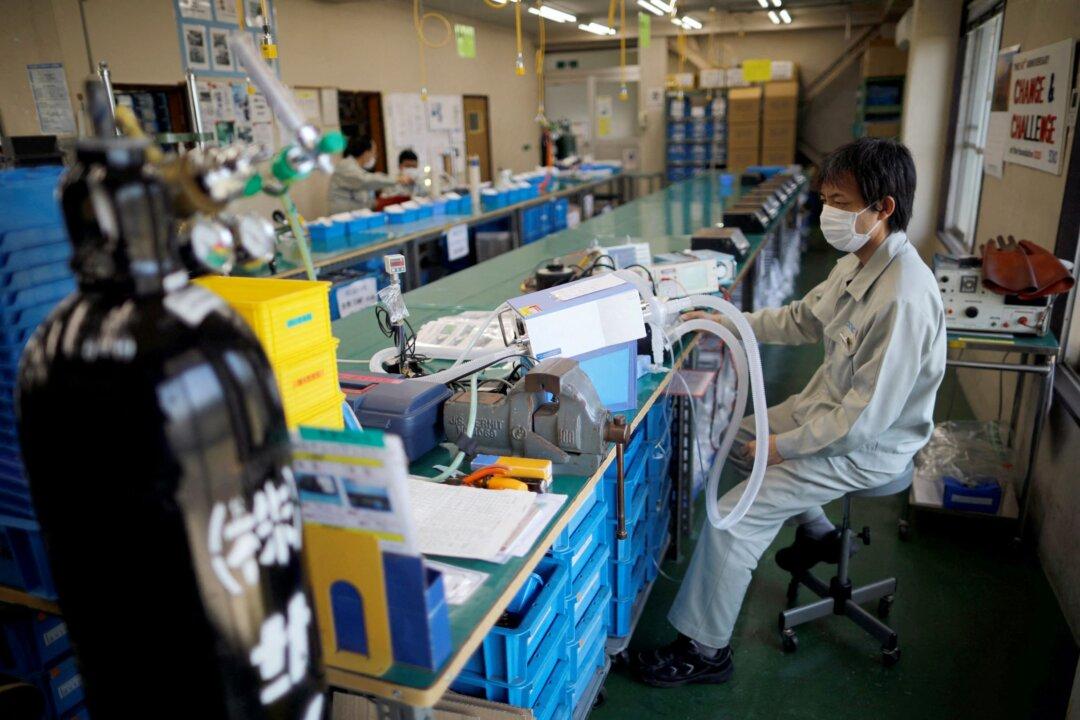TOKYO—Japan’s factory activity grew at the fastest pace in four years in January as output growth picked up, though pressure from a persistent chip shortage, rising input prices, and the coronavirus pandemic clouded the outlook.
However, activity in the private sector as a whole slipped into contraction for the first time in four months as a surge in Omicron variant coronavirus cases hurt customer-facing businesses in the services industry.





